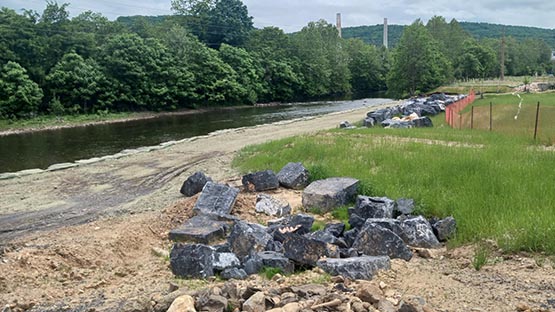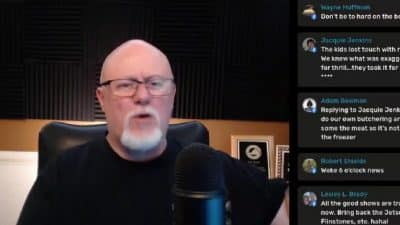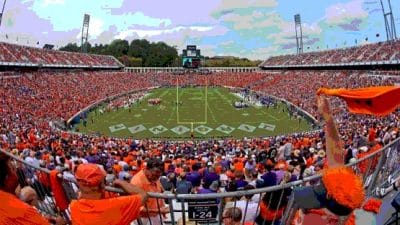
Election Night wasn’t a shocker, then, even if I had to spend the first hour and a half after the close of the polls at the Ward A precinct in Waynesboro as a poll watcher and keep to myself the news that Rasoul had outpolled Goodlatte by 20 or 30 votes there – all the while assuming that, you know, if he was winning a ward in Waynesboro, maybe I was shooting low saying 40 percent was my benchmark.
“It’s disappointing, but I think we’ve got some things to move forward with,” Rasoul told me in the wake of his Election Night defeat that saw him get a bit less than the 40 percent that I had projected-slash-hoped for him and for Democrats in the Sixth who hoped against hope that ’08 would be their year.
Rasoul’s 37 percent showing trailed the 42 percent number put up by fellow Democrat Barack Obama and the otherworldly 58 percent racked up by Democratic Senate candidate Mark Warner in the Sixth. But it also far outpaced the 30 percent that former Roanoke mayor David Bowers registered in a 1998 run that had effectively kept Democrats in the district busy with matters other than recruiting and running congressional candidates for the past decade.
The 114,000 votes also eclipsed the showing of any Dem running for Congress in the Sixth, including those who had won their races.
“We got around 37 percent of the vote, but we won the hearts and minds of that 37 percent. That’s a real strong base to build from,” said Rasoul, a 27-year-old businessman from the Roanoke area making his first run at public office.
I tend to agree with Rasoul that the numbers, while not 50 percent-plus-one or even 40 percent, are a step in the right direction for Democrats given their recent electoral history in the Sixth. But the hard reality is that it might be harder to build toward 50 percent-plus-one from the base that last week’s election results showed is there than any of us Democrats are letting on.
“Unless it’s redistricted, there’s little hope for Democrats to win that seat,” James Madison University political-science professor Bob Roberts said. “You’ve got Rockingham County and Augusta County, which go about 70 percent Republican, and Roanoke County, which is in that same ballpark. So with those three counties, there’s just no way a Democrat can win that district, unless it’s reconfigured. It just can’t happen. It’s just not possible. As long as that voting behavior remains the same, it’s one of the most secure Republican districts in the country,” Roberts said.
“You are talking about the most conservative area of the state, bar none,” Bridgewater College history and political-science professor David McQuilkin agreed. “I was surprised, quite frankly, that Harrisonburg went as much for Obama as it did, but there was a heavy influence from JMU, EMU and Bridgewater College that probably moved the pattern in the city. But you go out into the county, and McCain carried 67 percent of the vote, and that was down from the 75 percent that George W. Bush got in 2004. Then you look at Page, Shenandoah, Augusta, the mountain counties, Roanoke County – it’s really tough for a Democrat in this district,” McQuilkin said.
“Democrats can draw on a good day maybe 40 percent, but they don’t have the strength up and down the Valley to give themselves a really good shot at winning the district,” McQuilkin said.
But, I protested to the experts, what about what happened over in the Fifth District, another historically conservative district that appears to have elected Democrat Tom Perriello after a tough race with Republican incumbent Virgil Goode? I can see some clear parallels between what Rasoul was able to do in the Sixth in ’08 getting 37 percent of the vote and what Al Weed did in the Fifth in ’04 and ’06 pulling similar numbers prior to Perriello’s successful ’08 run. We could call Weed John the Baptist to Perriello’s Jesus of Nazareth, preparing the multitudes for what was to come.
I proposed the idea, but neither Roberts nor McQuilkin was buying it. “You look at that district, and the northern half of that district, Albemarle County, Charlottesville, Nelson County, and then the independent cities of Danville and Martinsville in the south, are all heavily Democratic. The districts are completely different,” Roberts said. “Virgil Goode was a target. He was not as popular in his district as he had once been. And the Democrats sensed this,” McQuilkin said. “They helped Tom Perriello get the kinds of resources that he needed once he proved himself to be a viable candidate in that district early on. I don’t think that Sam Rasoul, being a virtual unknown, very young, in a district where there was no real chance to unseat the incumbent, was going to get anything near that kind of help. And I don’t see Democrats coming down the line in the next few years having any kind of real support from the Democrats in Washington,” McQuilkin said.
That’s probably the bigger issue. Resources determine how well one can do in politics in this day and age, and Perriello had them, and used them well, not only running scads of TV ads dating back to the late summer but also quietly yet quite importantly opening campaign offices across the Fifth to serve as local hubs of operations. Rasoul didn’t have access, and explicitly didn’t want it, to party money, and while he was able to raise more than $400,000 all told by campaign’s end, he barely had any face time on TV and didn’t have the people presence up and down the Sixth that a challenger to a well-heeled long-term incumbent like Goodlatte is going to need to have.
But, now, consider that Rasoul had to have learned some lessons from this, his first run at elected office, and despite what the experts say, I still think he has given Democrats something to build on for future election cycles. Me personally, I wouldn’t want to be Goodlatte running in 2012 when Barack Obama is running for a second term in the White House and Jim Webb is running for a second term representing Virginia in the United States Senate.
“The David and Goliath story – unfortunately, Goliath was a little too big this time around. But we will just have to see where the future takes us,” Rasoul said.
– Story by Chris Graham










